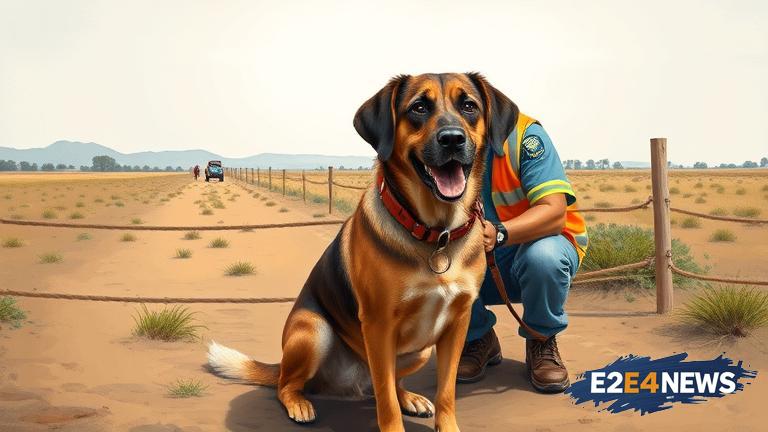In a significant move to bolster Australia’s biosecurity, a new team of detector dog handlers has been introduced to strengthen the country’s defenses against exotic pests and diseases. The new handlers will work alongside highly trained detector dogs to identify and intercept potential biosecurity threats at airports, seaports, and mail centers. This initiative is part of the Australian government’s ongoing efforts to protect the country’s unique environment, agriculture, and economy from the risks associated with international travel and trade. The detector dogs, trained to detect a wide range of biosecurity risks, including fruits, vegetables, meats, and plant materials, will play a crucial role in identifying potential threats. The new handlers have undergone extensive training to ensure they can effectively work with the dogs and respond to any biosecurity incidents. The introduction of the new detector dog handlers is a testament to Australia’s commitment to maintaining its high biosecurity standards. The country’s biosecurity system is designed to balance the need to facilitate international trade and travel with the need to protect the environment and agriculture from exotic pests and diseases. The detector dog program is an essential component of this system, providing an additional layer of protection against biosecurity threats. The new handlers will work closely with other biosecurity agencies, including the Department of Agriculture, Water and the Environment, to ensure a coordinated approach to biosecurity. The Australian government has invested heavily in biosecurity measures in recent years, recognizing the significant economic and environmental benefits of protecting the country’s unique biodiversity. The introduction of the new detector dog handlers is expected to further enhance Australia’s biosecurity capabilities, providing an additional layer of protection against exotic pests and diseases. The detector dogs are trained to detect a wide range of biosecurity risks, including those that could potentially devastate Australia’s agricultural industries. The new handlers will be deployed at key locations around the country, including major airports and seaports, to provide an effective and efficient biosecurity service. The Australian government’s commitment to biosecurity is reflected in its significant investment in biosecurity measures, including the detector dog program. The new detector dog handlers will play a vital role in supporting this commitment, working to identify and intercept potential biosecurity threats. The detector dog program is a highly effective way to detect and prevent the entry of exotic pests and diseases, and the introduction of the new handlers will further enhance this program. The Australian government’s biosecurity measures are designed to protect the country’s environment, agriculture, and economy from the risks associated with international travel and trade. The detector dog program is an essential component of these measures, providing an additional layer of protection against biosecurity threats. The new handlers will work closely with other biosecurity agencies to ensure a coordinated approach to biosecurity, providing an effective and efficient service to the community. The introduction of the new detector dog handlers is a significant development in Australia’s biosecurity efforts, demonstrating the country’s commitment to protecting its unique environment and agriculture. The detector dogs are highly trained to detect a wide range of biosecurity risks, and the new handlers will play a crucial role in supporting this work. The Australian government’s investment in biosecurity measures, including the detector dog program, is expected to have significant economic and environmental benefits, protecting the country’s agricultural industries and unique biodiversity. The new detector dog handlers will be an important part of this effort, working to identify and intercept potential biosecurity threats and support the country’s biosecurity efforts.
